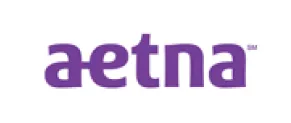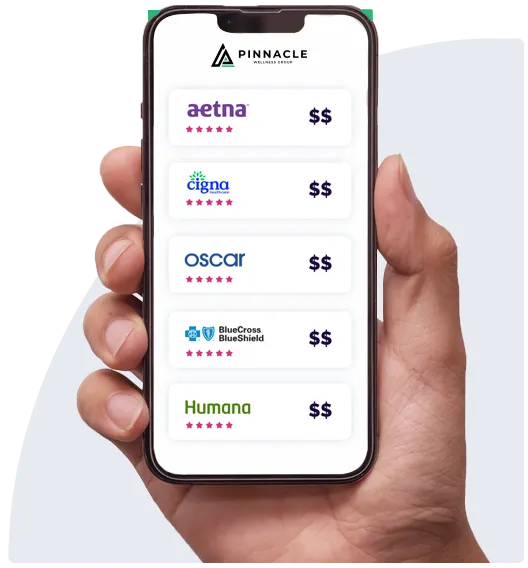
Compare Free Health Insurance Quotes
Sorting Through Dozens or More Of Health Insurance Plans Can Be Daunting, Especially if You Encounter Unfamiliar Terms.
Our partners with America’s best Insurance companies





Comparison Shopping Can Help You Find the Right Health Insurance at an Affordable Price
Having health insurance for you and your family is already a given but you shouldn’t have to pay more than you have to. However, with insurance companies using different pricing methods and market factors like inflation and the cost of medical services in constant flux, it can be hard to know if you’re overpaying for health insurance. That’s where shopping around comes in.
“Comparison shopping can help you sort through the different pricing variables and find the best premium possible for health insurance.”
Comparing Health Insurance Rates the Traditional Way
If you’re not insured through your or your spouse’s employer, you’ll need to shop for health insurance on the federal health exchange or your state’s equivalent, which can be confusing to navigate. Before explaining how SmartFinancial simplifies the shopping process, let’s review the (tedious) steps of shopping around the traditional way.
Step 1: Decide How Much Coverage You Need
Marketplace plans can no longer have an annual limit on coverage for essential health benefits so you will not need to factor that into your research like you would when shopping for renters or auto insurance. Instead, you will need to look at coverage scope, such as buying insurance for otherwise excluded benefits ,like vision or dental coverage.
In addition, you will want to determine what coverage you want for out-of-network services and consider the size of an insurance company’s provider network. If you want to go out of network and still have some coverage, you may want to buy a more expensive PPO plan. On the other hand, if you’re fine with having access to a smaller network and not having any out-of-network coverage, then a more affordable HMO plan may be preferable.
Step 2: Make Sure You Have the Right Information and Documentation
Getting accurate prices and pinpointing the most relevant coverage options begins with having the right information and documentation, which includes the following:
Zip code
Number of dependents
Coverage start date
Coverage needs
Current primary care physician (if you want to confirm if they are in the new insurance company’s network)
Whether you’re fine with generic drugs or need specialty drugs
Step 3: Research Insurance Companies
Entering your information on the marketplace website will return a list of health insurance plans, each with its own premiums, copays, coinsurance, deductibles and benefits. In addition, you should notice mentions of different metal tiers : bronze, silver, gold and platinum. These categories dictate your premium and out-of-pocket costs, with bronze plans having the lowest monthly premium and the highest out-of-pocket costs and platinum plans having the highest monthly premium and lowest out-of-pocket costs.
In general, bronze plans are preferred for younger and healthy people since they are unlikely to visit the doctor frequently and can enjoy more affordable rates. Platinum plans are recommended for those who require frequent medical care and prescription drug refills and want to minimize copays and coinsurance payments.
Additionally, if there’s a specific doctor or specialist you want to continue seeing, then you will need to confirm that they are within the network of whichever insurance company you’re considering. Each health insurance company should have a database of in-network doctors and hospitals on their website that you can reference.
The Pinnacle Wellness Group Way To Compare Health Insurance
Sorting through dozens or more of health insurance plans can be daunting, especially if you encounter unfamiliar terms. Who wants to spend even more time researching? On top of that, you’re on a ticking clock since open enrollment only lasts a few months.
Good news for you: We make it fast and simple to shop for health insurance.
With Pinnacle Wellness Group, you complete a single questionnaire, and based on your answers, we match you with a policy that can meet your coverage needs and budget. No need for endless scrolling or looking up unfamiliar words. The best part: This service is 100% free.
How Pinnacle Wellness Works
Complete a Quick Questionnaire
Answer a few simple questions about your age, gender, desired coverage, and any dependents.Get Personalized Quotes
Based on your answers, we’ll match you with plans tailored to your coverage needs and budget.Choose Your Plan
Review your options, compare plans, and select the one that works best for you. It’s that simple!

The Basics of Health Insurance
Featured Guide
What Is Health Insurance: How It Works, Costs and Types
Health insurance is a contract between the policyholder and an insurance company that lowers what policyholders must pay for medical services in exchange for paying a monthly premium. This arrangement helps individuals access the medical treatments they need that would otherwise be unaffordable. Several types of health insurance plans exist, which vary in cost and coverage.
Types
How Do I Choose Between HMO and PPO Insurance?
Save Money
How Do I Get Health Insurance?
Coverage
What Does Copay Mean in Health Insurance?
Types
Your Complete Guide to EPO Insurance
Save Money
What Is Coinsurance in Health Insurance?
Coverage
What Is a Health Insurance Deductible? What You Pay Before Coverage Begins
Frequently Asked Questions
Is health insurance required?
Technically, all U.S. citizens are expected to maintain health insurance but there is currently no federal penalty for not doing so. However, tax penalties can still exist at the state or local level, such as in California, Massachusetts, New Jersey, Rhode Island and Washington, D.C.
What are the types of health insurance?
There are several types of health insurance plans with common ones including HMOs that require referrals for specialists and do not provide out-of-network coverage and PPOs that do not require specialist referrals and do offer out-of-network coverage but cost more than HMOs.
What’s not covered by health insurance?
Many health insurance plans exclude the same things such as coverage for vision, dental and hearing services but it is possible to buy specific plans to get these coverages. Talk to your insurance agent or reference your insurance policy for a more comprehensive list of what your policy does not cover.
Get Health Insurance Quotes in Under 3 Minutes
Answer a few questions and let us find the best rates for you.
